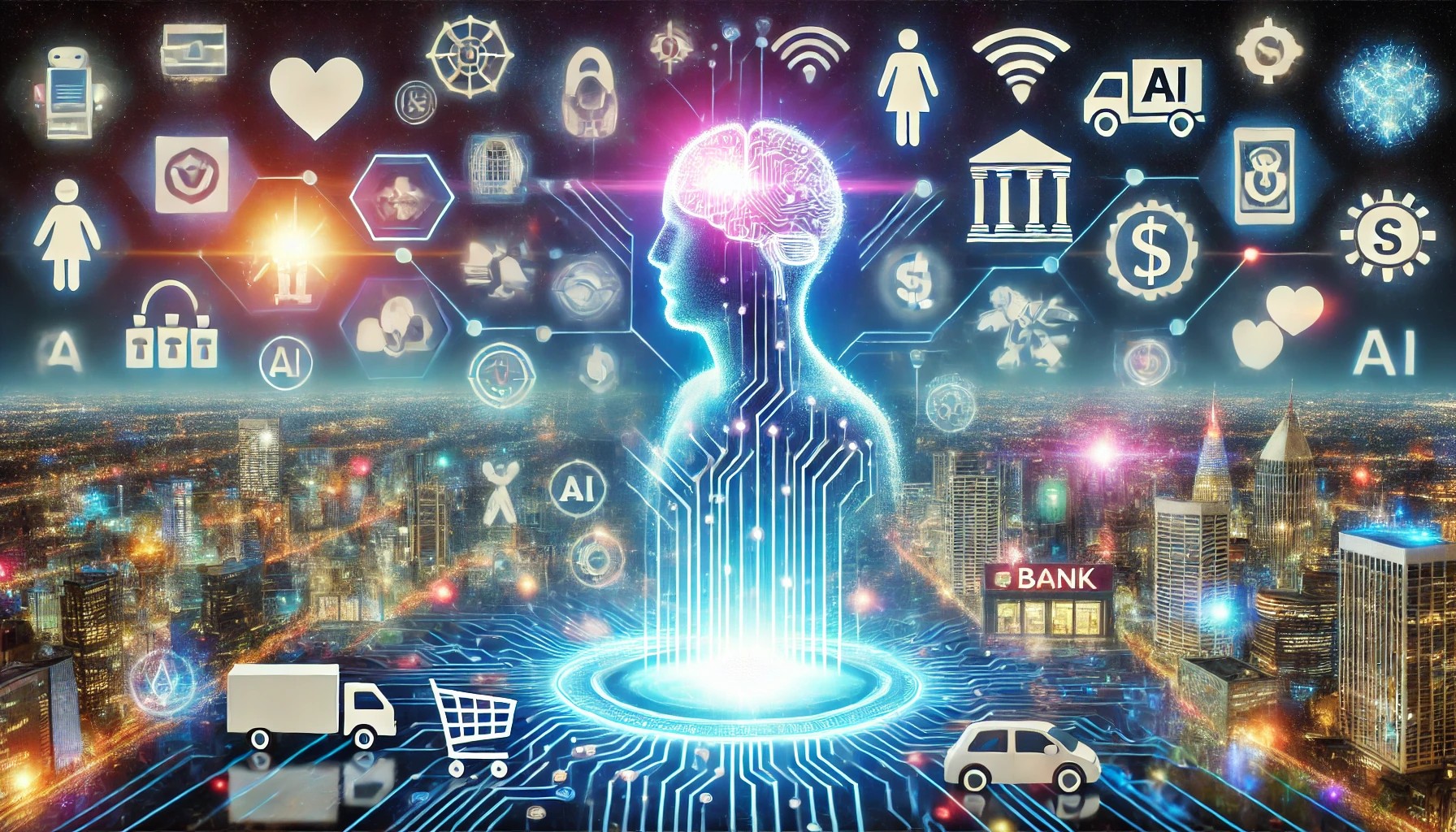June 2024
Introduction
Artificial Intelligence (AI) is no longer just a futuristic concept reserved for tech companies. Traditional businesses across industries like manufacturing, retail, agriculture, and logistics are increasingly adopting AI to improve operations, drive innovation, and gain a competitive edge. In 2024, we continue to see AI transforming businesses that were once considered slow to innovate. In this blog, we’ll explore how traditional businesses are successfully leveraging AI, highlighting real-world success stories that show the tangible benefits of AI adoption.
1. AI in Manufacturing: Optimizing Production and Reducing Costs
Manufacturing has long been an industry driven by efficiency, and AI is taking this to new levels. General Motors (GM) has embraced AI to enhance its production processes, using machine learning algorithms to predict machinery maintenance needs and optimize production lines. With predictive maintenance, GM is able to reduce downtime and save millions in repair costs by fixing machines before they fail.
In 2024, the use of AI-powered robotics in manufacturing continues to rise, allowing companies to automate repetitive tasks while improving precision. By adopting AI, manufacturers not only boost productivity but also reduce costs related to human error, material waste, and energy consumption.
2. AI-Driven Customer Experience in Retail
Retailers have always been customer-centric, but AI has enabled a whole new level of personalization and customer engagement. Walmart and Target are prime examples of retail giants successfully integrating AI into their operations. By leveraging AI-powered recommendation engines, these companies can offer personalized shopping experiences based on customers’ browsing history, preferences, and purchase behavior.
In addition, AI chatbots are now handling a significant portion of customer service inquiries, improving response times and reducing the need for human intervention. For smaller businesses, adopting AI in customer service can improve efficiency and provide 24/7 support, helping them compete with larger brands.
3. AI in Agriculture: Precision Farming for Better Yields
The agriculture industry has embraced AI in the form of precision farming to increase yields and reduce waste. John Deere, for example, has integrated AI into its farming equipment, allowing farmers to monitor crops in real time using sensors, drones, and predictive analytics. By analyzing weather patterns, soil conditions, and crop health, AI systems provide farmers with valuable insights on when and where to plant, water, or apply fertilizers.
In 2024, precision farming continues to reduce resource consumption while boosting crop output, which is critical as the global demand for food increases. For agricultural businesses, adopting AI means maximizing efficiency and minimizing environmental impact—both essential for long-term sustainability.
4. AI in Logistics: Enhancing Efficiency in Supply Chains
The logistics industry, known for its complexity, has found AI to be a game-changer. UPS and DHL have both implemented AI solutions to optimize route planning, improve inventory management, and reduce delivery times. By analyzing traffic data, weather conditions, and delivery patterns, AI can determine the most efficient delivery routes, saving time and fuel costs.
In 2024, AI is also playing a bigger role in warehouse automation, where AI-powered robots sort and move products, improving both speed and accuracy. Businesses in the logistics sector that invest in AI are not only enhancing operational efficiency but also improving customer satisfaction by ensuring timely deliveries.
5. AI Adoption Challenges and How Businesses Overcome Them
While the benefits of AI are clear, traditional businesses often face challenges when adopting these technologies. One of the biggest hurdles is the initial cost of AI implementation, particularly for small and mid-sized businesses. However, many businesses have found ways to gradually integrate AI into their operations by starting with AI-powered tools for specific tasks—like customer service or inventory management—and expanding from there.
Another challenge is the skills gap in AI and data science. Companies that have successfully adopted AI often invest in employee training or partner with AI firms to bridge this gap. By focusing on gradual implementation and upskilling, traditional businesses can overcome the barriers to AI adoption and reap the long-term benefits.
Quiz: How AI is Transforming Traditional Industries
Which company is using AI for predictive maintenance to optimize production lines? A. Tesla
B. John Deere
C. General Motors
D. Walmart
What is a key benefit of using AI in agriculture? A. Faster customer service
B. Higher crop yields with lower resource consumption
C. Real-time customer feedback
D. Reduced delivery times
How are logistics companies like UPS and DHL using AI? A. To automate factory production lines
B. To optimize delivery routes and manage inventory
C. To increase store foot traffic
D. To create social media content
Email your answers to info@vistagan.com for a chance to win a free T-Shirt! Contest closes at the end of the month.
Conclusion
AI is no longer limited to tech startups or cutting-edge industries. In 2024, traditional businesses are successfully leveraging AI to transform operations, improve efficiency, and drive innovation. From predictive maintenance in manufacturing to precision farming in agriculture, the benefits of AI adoption are clear. For businesses willing to embrace AI, the opportunities are vast, offering a competitive advantage in an increasingly automated world.
Are you interested in adopting AI to transform your business? Contact us today at www.vistagan.com for a consultation and learn how AI solutions can drive your business forward.


